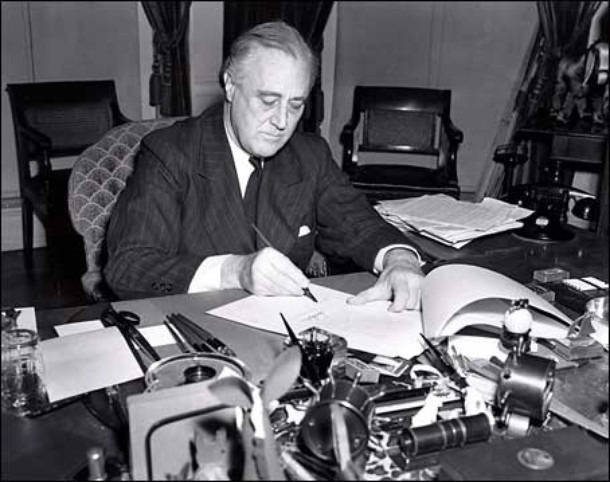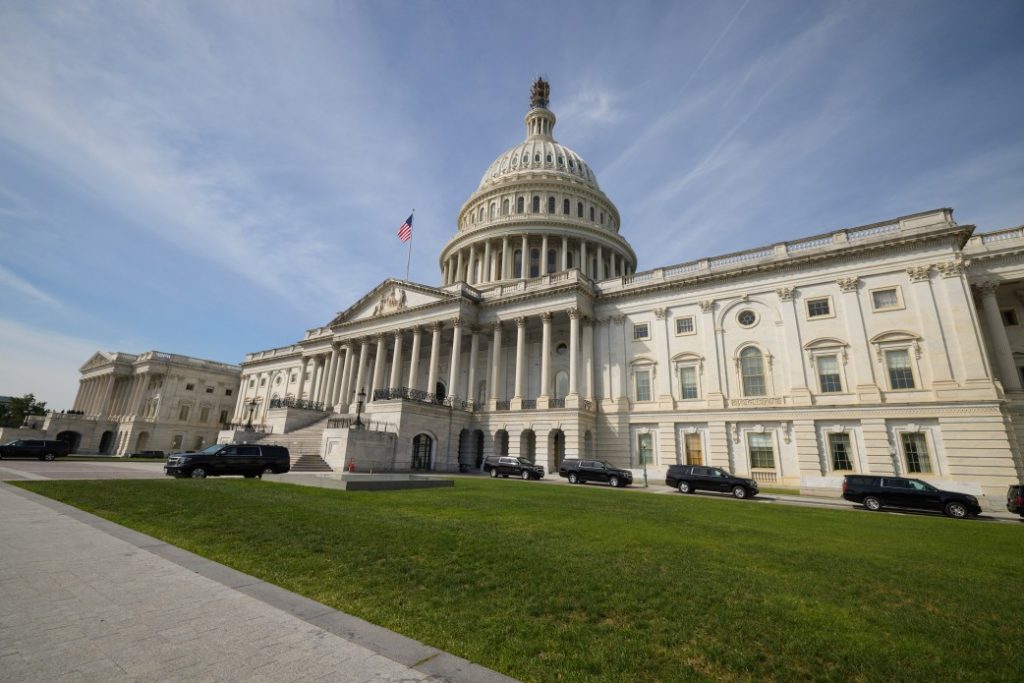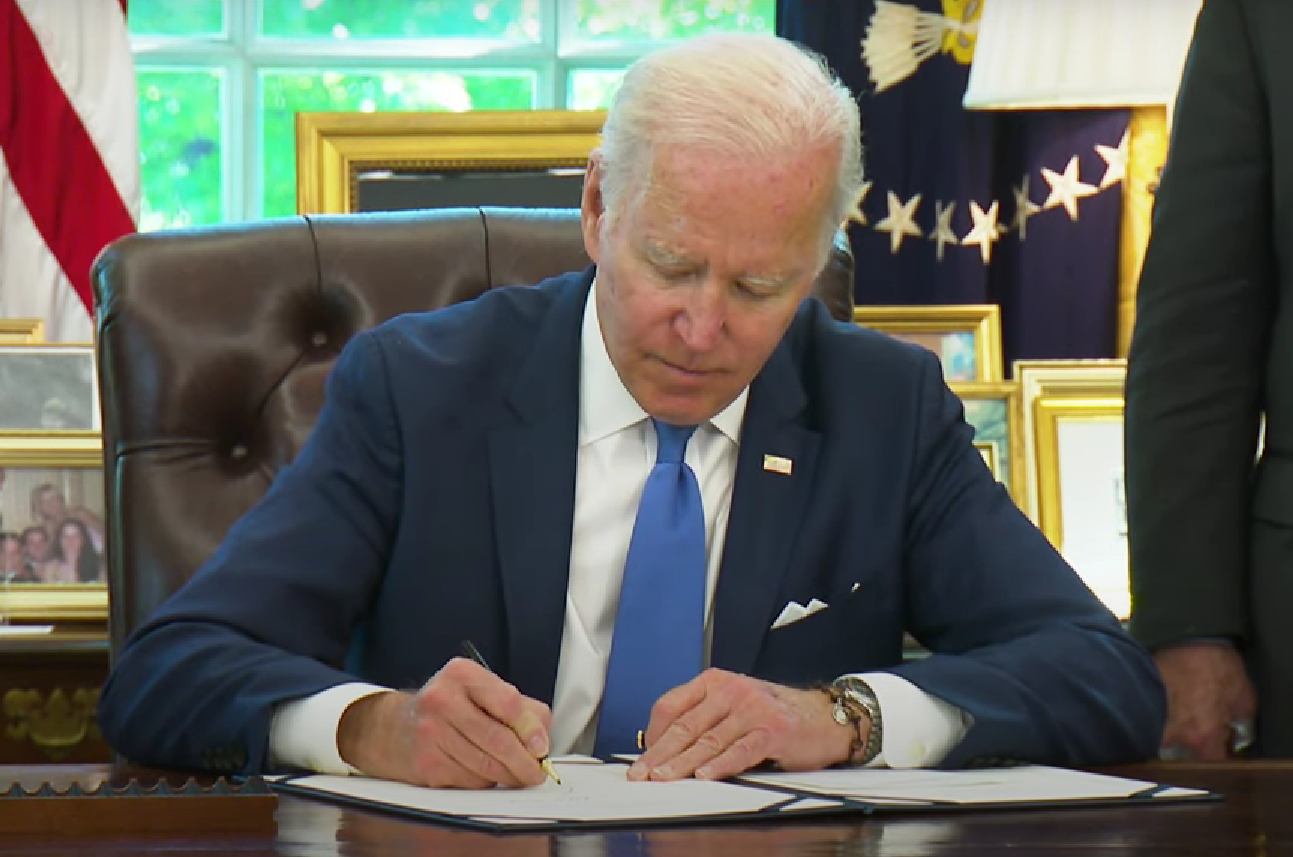On 9 May 2022, US President Joe Biden signed the Ukraine Democracy Defense Lend-Lease Act to bolster Ukraine against Russia's invasion. This was a highly ceremonial and symbolic gesture, given that 9 May is the day when Russians commemorate the victory in WWII. However, the Lend-Lease Act ultimately lapsed on 3 October 2023, coinciding with the conclusion of the US fiscal year, without resulting in any military assistance for Ukraine.
What is the Lend-Lease?
Lend-Lease, officially known as the Lend-Lease Act, was first employed during WWII. This policy saw the US supplying military equipment, oil, and food to the UK, the USSR, France, China, and other Allied nations from 1941 to 1945. The aid was extended free of charge, recognizing its vital role in the defense of the United States.
"Suppose my neighbor's house catches fire, and I can lend him a hose to help put it out. I don't say I want $15 for the hose, I say I want the hose back when he has put out the fire," US President Franklin D. Roosevelt explained in 1940.

The substantial American aid significantly influenced WWII, although, in the USSR, its role in the victory over Nazism was understated. So, when Biden signed the Lend-Lease Act for Ukraine in 2022, it brought immense joy to Kyiv.
"I am sure that now the Lend-Lease will help Ukraine and the whole free world beat the ideological successors of the Nazis, who started a war against us on our land," said Ukrainian President Volodymyr Zelenskyy in 2022.

Yet after some time, this issue vanished from the radars of high politics. And now, due to the turbulent period in American politics, military aid to Ukraine has in principle come into question. How could this happen?
Explanations and excuses
Ukrainians have often asked why Lend-Lease isn't operational. Washington has clarified that Ukraine receives military assistance through three other American budget programs: Ukraine Security Assistance Initiative (USAI), Foreign Military Financing (FMF), and Replenishment of US weapons stocks (PDA). Unlike Lend-Lease, which involves leasing or lending weapons, these programs provide free assistance to Ukraine, making them even more advantageous for Kyiv.
That's why American and Ukrainian top officials have begun publicly referring to Lend-Lease as a "backup" option. The idea was that if the US Congress refuses to allocate funds for these budgetary programs, then Lend-Lease could come in handy.
"The aid we're getting now are gifts. Gifts won't be replaced by loans," Ukrainian Foreign Minister Dmytro Kuleba told Forbes Ukraine in 2022.

According to the Ukrainian Foreign Ministry’s spokesperson Oleh Nikolenko, one of the advantages of the Lend-Lease is that decisions on aid would be made quicker. They would be approved the US Administration under a simplified procedure, without the need for voting for each package of aid in the Congress – a significant advantage given the current congressional gridlock.
However, this program would also require Ukraine’s future reimbursement for weapons, military equipment, and ammunition:
“Any loan or lease of defense articles to the Government of Ukraine under paragraph (1) shall be subject to all applicable laws concerning the return of and reimbursement and repayment for defense articles loan or leased to foreign governments,” the Ukraine Democracy Defense Lend-Lease Act of 2022 reads.
Whether the Lend-Lease is beneficial for Ukraine or not is very difficult to assess, former Ukrainian Ambassador Valeriy Chaly told BBC.
"I have a question - why does everyone assume we will have to pay [for the weapons]? The point is that all of this should be spelled out in an agreement. Whether to pay or not pay, or simply have a condition to return undamaged equipment [after the war], we do not know, because there is not even a draft of such an agreement yet," the diplomat remarked.

According to the BBC’s sources, Lend-Lease didn't go into effect because the Biden administration preferred allocating funds directly to Ukraine rather than providing military equipment. In this approach, Congress allocates funds, and the Pentagon, in coordination with the White House, decides how to use them for specific weapons and contracts with American manufacturers, which was considered more flexible than the Lend-Lease option.
What is happening with American aid to Ukraine now?
Amid a severe political crisis, bipartisan disagreements over military aid for Ukraine prevented American lawmakers from reaching a long-term budget agreement. To avert a potential government shutdown by 1 October, Congress hastily passed a temporary funding bill on 30 September. This brief 45-day measure omitted Ukraine assistance, despite the Biden administration's plea for an extra $24 billion.

President Biden signed it just in time, urging House Speaker Kevin McCarthy to expedite additional aid for Ukraine.
“We cannot under any circumstances allow American support for Ukraine to be interrupted. I fully expect the Speaker will keep his commitment to the people of Ukraine and secure passage of the support needed to help Ukraine at this critical moment,” Biden said.
However, on 3 October, Republican McCarthy became the first House Speaker in US history to be removed from office. Throughout these political battles, the phrase "Lend-Lease for Ukraine" never surfaced.
Is the Lend-Lease Act for Ukraine dead?
According to Valeriy Chaly, it's premature to declare the Lend-Lease Act completely abandoned.
Trending Now
"There is a possibility that Lend-Lease will be extended through an amendment to the 2024 defense budget [National Defense Authorization Act for Fiscal Year 2024]. And this would be the right thing to do, because this instrument, in my opinion, needs to be "on hand", meaning available, so that it can be utilized in current conditions," the diplomat believes.
Ukraine's current Ambassador to the US, Oksana Markarova, is actively working to convince the Congress to extend the Lend-Lease Act.
"An amendment in the House of Representatives to extend Lend-Lease for the entirety of 2024 has already passed. It has been introduced in the Senate, and we are waiting for the conference between the House and the Senate where synchronization of the two bills will be decided," Markarova told Suspilne Media.

What’s next?
The recent funding snag hasn't compelled the White House to reconsider the future of US support for Ukraine's war effort.
“Nobody is hitting the panic button over here,” one US official told the WSJ.
At the Pentagon, $5.2 billion still remains allocated to supply weaponry and other security assistance to Ukraine. This amount is approximately equal to the value of the weaponry sent by the Biden administration to Ukraine in the past six months for its conflict with Russia.
Additionally, the United States plans to announce a new aid package for Ukraine in the near future.
“There is [a] strong, very strong international coalition behind Ukraine. And if Putin thinks he can outlast us, he’s wrong. And so we will have another package of aid for Ukraine soon to signal our continued support for the brave people of Ukraine,” said White House press secretary Karine Jean-Pierre.
Ukrainian Foreign Minister Dmytro Kuleba mentioned that ongoing discussions with both Republicans and Democrats were in progress and characterized the omission as an isolated incident.
“We are now working with both sides of Congress so that it does not happen again under any circumstances. Therefore, we do not believe that US support has faltered,” said Kuleba.
The WSJ noted that congressional Republicans, by obstructing aid to Ukraine, are harming both American arms production and the broader modernization of US weaponry. This is worrying given the array of geopolitical challenges, most notably the threat posed by China.
“The more weapons America can produce, the more the world’s Xi Jinpings have to think long and hard about provoking the US,” the WSJ believes.

Meanwhile, in their article in The Hill, retired US Army Colonel Jonathan Sweet and economist Mark Toth cautioned that while Ukraine fights for its survival, its aid has become a political football. The authors urge the Biden administration to clarify to the public why supporting Ukraine aligns with America's national security interests.
“Ukraine has Putin and his generals on the ropes. For the US to walk away at this point is unconscionable. Just enable Ukraine to finish the job,” said Sweet and Toth.
We can only hope the White House will be able to pull this off.
Related:
- How much of US aid to Ukraine actually goes to Ukraine
- So far US supplies military aid to Ukraine using non-lend-lease mechanisms – Ukraine MFA

